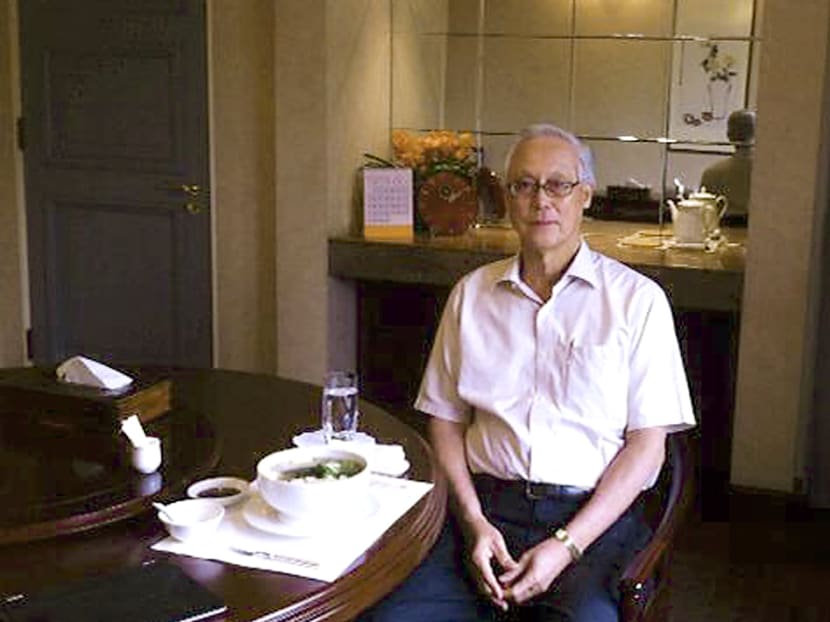‘Effective, credible foreign policy’ key to S’pore’s growth
SINGAPORE — Singapore cannot afford to be inward-looking when robust foreign policy is key to sustaining the Republic’s growth, said Emeritus Senior Minister Goh Chok Tong yesterday.

In a Facebook post on Dec 1, 2014, Mr Goh Chok Tong said he had been given a clean bill of health by his doctor and was now back at work. Photo: MParader/Facebook
SINGAPORE — Singapore cannot afford to be inward-looking when robust foreign policy is key to sustaining the Republic’s growth, said Emeritus Senior Minister Goh Chok Tong yesterday.
Referring to domestic and foreign policy as “two wings (a country needs) to fly,” Mr Goh said: “The paradox of today’s globalised world is that countries are becoming more self-absorbed — including Singapore … My experience has shown that a robust, effective and credible foreign policy is vital to creating the space and vehicles necessary to sustain Singapore’s domestic growth.”
Meanwhile, domestic disorder will also compromise the “external wing”.
“If Singapore is hobbled by fractious domestic politics, our leaders will have less time and energy for foreign policy,” he said.
Mr Goh — who was Singapore’s Prime Minister from November 1990 to August 2004 and remained in the Cabinet as Senior Minister until May 2011 — made these remarks to an audience comprising some 500 diplomats and students at the S Rajaratnam Lecture at the St Regis hotel yesterday.
Addressing questions on Singaporeans’ increasing involvement in international affairs, including taking to Hong Lim Park to show their support or protest against global events, Mr Goh said it is important for Singaporeans to discuss how certain global events can affect us, citing the activities of militant group Islamic State of Iraq and Syria (ISIS) as an example.
However, if people import issues which do not have much to do with Singapore, “purely because of their belief in certain values practised elsewhere or certain causes”, such debates can be detrimental to our interests, he added.
He said demonstrations would “come naturally” when people feel that they are not benefiting from governance and, therefore, sound governance was crucial in ensuring that everyone in Singapore can progress.
Mr Goh also acknowledged that Singaporeans were not taking much interest in countries in the immediate region, especially noting the “lack of kinship” with neighbouring Malaysia. It is important to enhance engagement among politicians of countries in the region, he said, to “foster a better understanding (and) remove any misperceptions of one another”.
During his speech, Mr Goh highlighted three imperatives that have shaped Singapore’s foreign policy over the decades — preserving sovereignty, enhancing security here and in the region, and expanding its international space. He noted that the third — increasing Singapore’s geopolitical and economic space — has taken centrestage in recent years.
Recounting the experiences during his time as the Prime Minister, Mr Goh said Singapore had established open links with regional and global partners through free trade agreements and regional forums to advance its economic and strategic interests.
Citing the Asia-Europe Meeting (ASEM), which was first held in 1996, as an example, he noted that “empathy, trust and candour” between leaders are vital in establishing and maintaining bilateral relations.
“ASEM was a big idea from a small country. We pulled it off because we did not think only of our own interests. We sold its strategic benefits to others, aligned their interests with ours and secured their buy-in.”
During the dialogue session, Mr Goh also shared a fourth imperative — getting what happens at home right. “Because if you can’t run Singapore successfully … Your security is gone, which means sovereignty could be threatened and space, how do you negotiate with the others? You can’t offer Singapore as a viable economy to the others,” he said.






